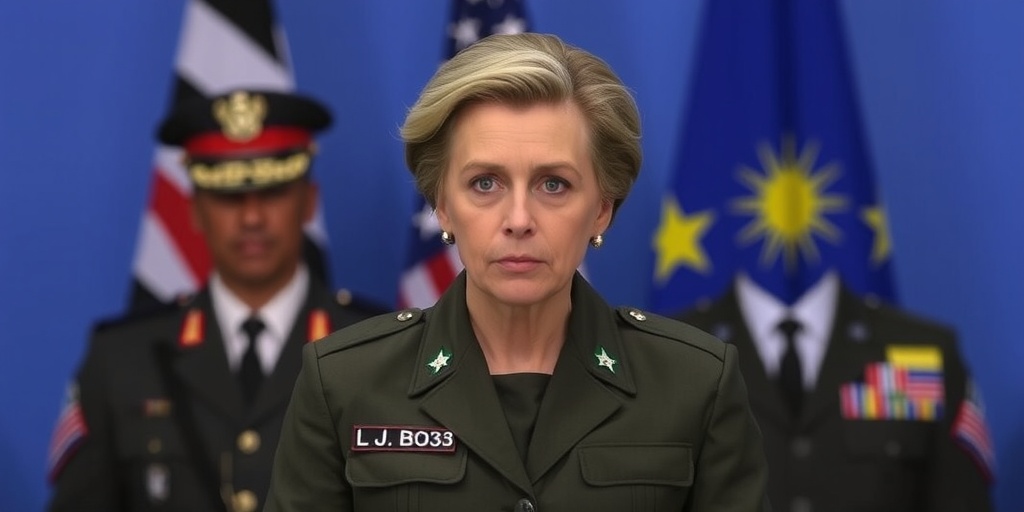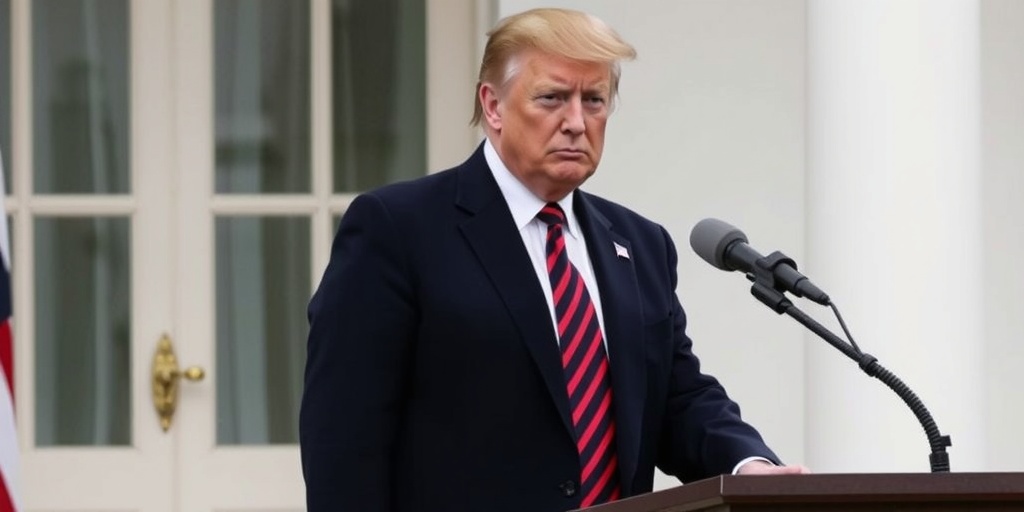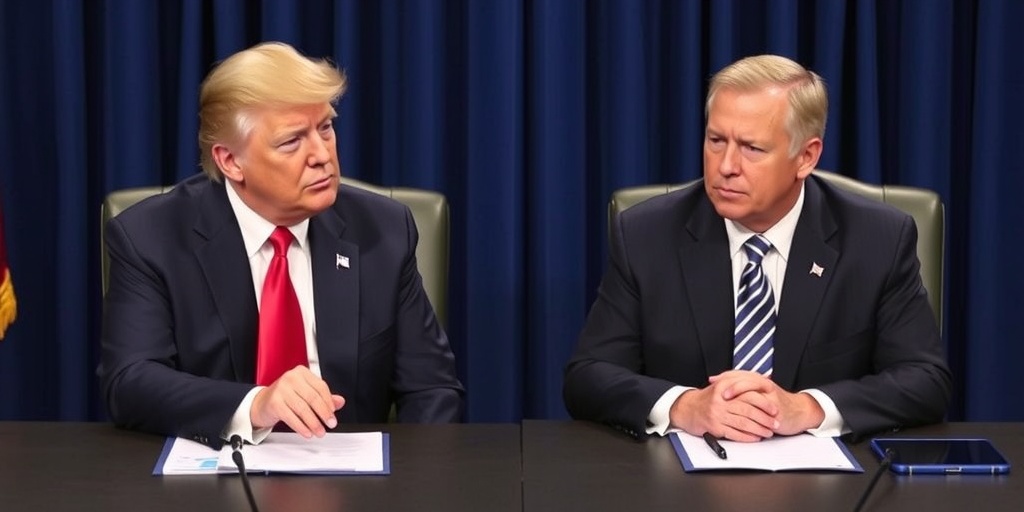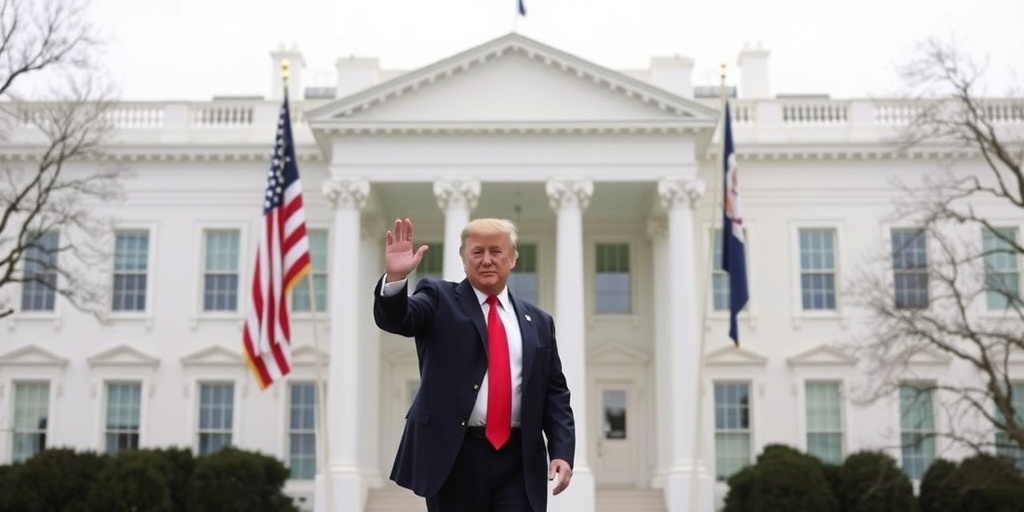Now Reading: Von Der Leyen Announces Major Increase in E.U. Military Spending
-
01
Von Der Leyen Announces Major Increase in E.U. Military Spending
Von Der Leyen Announces Major Increase in E.U. Military Spending

Title: Europe Unveils Ambitious Defense Spending Proposal Amid Rising Security Concerns
In a pivotal moment for European security policy, Ursula von der Leyen, the president of the European Commission, announced a sweeping framework aimed at bolstering defense spending across the continent. This initiative comes during a time of uncertainty, particularly concerning the United States’ role in supporting Ukraine amidst ongoing tensions with Russia and dwindling military aid from the Trump administration, which has recently begun to pivot closer to Russian interests.
Von der Leyen’s proposal outlines plans to increase European defense spending by as much as €800 billion (approximately $843 billion). This includes a notable €150 billion loan program designed to enhance military capabilities with a focus on acquiring advanced weapons and technologies. Speaking from Brussels, von der Leyen emphasized, “We are in an era of rearmament,” highlighting the urgency of the situation as European leaders express concerns over Mr. Trump’s shifting geopolitical stance.
The proposed plans mark a significant policy shift for the European Union, which has historically positioned itself as a promoter of peace and open trade. The changing geopolitical landscape necessitates a robust response as the EU grapples with a newfound recognition of its vulnerabilities. In particular, the calls for increased military expenditure arise from a critical need to support Ukraine, which continues to face severe military challenges against Russia.
Trump’s administration has recently suspended military aid to Ukraine, escalating fears within Europe. The US’s realignment signals a departure from its role as a primary security guarantor for Europe, compelling EU member states to reconsider their defense strategies in the absence of American support. Von der Leyen’s proposals could be seen as both a remedy for immediate concerns regarding Ukraine’s security and a strategic measure to enhance Europe’s long-term defense capabilities against a more assertive Russia.
The cornerstone of von der Leyen’s initiative is the proposed defense fund, which offers defense-related loans to EU member states. These funds are aimed at financing various military projects, including air and missile defense systems, artillery, drones, and cyber technologies. European Commission officials intend to raise capital for the fund through capital markets, activating an emergency provision that allows for exceptional financial aid to member states. The plan requires a simple majority approval from the European Council, a relatively achievable hurdle.
Additionally, von der Leyen has suggested easing budgetary constraints to allow member states greater flexibility in their defense spending. She previously announced intentions to propose exemptions for defense investments from strict EU deficit rules. Despite a recent 30% increase in EU defense spending since 2021, current levels remain insufficient for Europe to attain genuine military independence from the US.
Many European nations are already struggling to adhere to fiscal targets that dictate their budget deficits must remain below 3% of GDP. With eight countries, including Belgium, Poland, and France, grappling with these limits, it is crucial for the EU to find means to facilitate defense spending without compromising essential social services such as health care.
To accommodate these spending increases, von der Leyen mentioned the possibility of implementing a budget "escape clause" that could enable additional defense spending amounting to 1.5% of member states’ GDP, translating into approximately €650 billion over four years. However, the effectiveness of such measures remains uncertain, contingent upon individual states’ willingness to approve and implement increased military budgets.
Moreover, the proposed plan suggests redirecting existing EU funding towards defense projects. Member states could potentially utilize "cohesion funding" — originally intended for economic development in poorer regions — to finance military expenditures. This redirection would allow countries to balance their economic development needs with pressing security requirements.
The European Investment Bank (EIB) may also play a role in financing defense initiatives. Although the EIB has been gradually increasing its funding for security projects, there are growing calls among EU officials to alter its limitations on purely military investing, thus permitting a more extensive range of defense-related financing.
Despite these ambitious outlines, many analysts believe von der Leyen’s proposal lacks specific details on how assistance will be allocated to Ukraine vs. broader European defense spending. While discussions are underway regarding a potential €20 billion support package for Ukraine, the absence of explicit mention in von der Leyen’s announcement has raised concerns.
Overall, while the proposal functions as a significant starting point for a broader strategy to enhance European security, further details are expected to emerge in the coming days, particularly during the upcoming summit of EU heads of state. According to Maria Martisiute, a defense policy analyst, “It’s a start, it’s a good signal, but she didn’t go as big as maybe most of us would have expected.” The evolving dynamics suggest that Europe is prepared to take critical steps toward reinforcing its defense framework in an increasingly volatile global landscape.
Stay Informed With the Latest & Most Important News
Previous Post
Next Post
-
 01New technology breakthrough has everyone talking right now
01New technology breakthrough has everyone talking right now -
 02Unbelievable life hack everyone needs to try today
02Unbelievable life hack everyone needs to try today -
 03Fascinating discovery found buried deep beneath the ocean
03Fascinating discovery found buried deep beneath the ocean -
 04Man invents genius device that solves everyday problems
04Man invents genius device that solves everyday problems -
 05Shocking discovery that changes what we know forever
05Shocking discovery that changes what we know forever -
 06Internet goes wild over celebrity’s unexpected fashion choice
06Internet goes wild over celebrity’s unexpected fashion choice -
 07Rare animal sighting stuns scientists and wildlife lovers
07Rare animal sighting stuns scientists and wildlife lovers





















